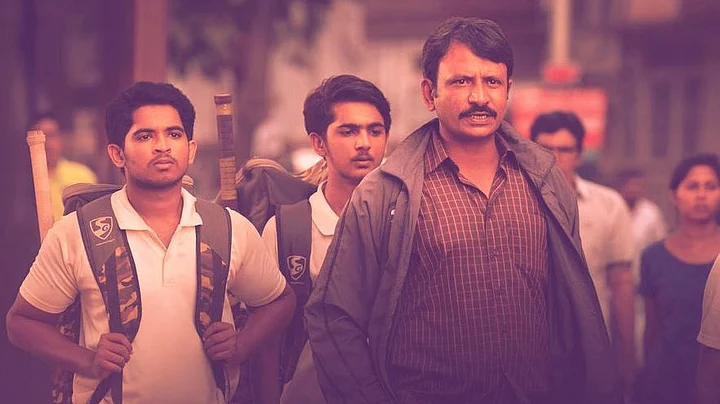An adaptation of Aravind Adiga’s novel of the same name, six-part series Selection Day is the story of two brothers and their unequal and uneasy equation with cricket, their cricket-mad and authoritarian father and their own identities.
From the time of their birth into a humble home in Madhya Pradesh, Radha and Manju’s father (Rajesh Tailang) has charted a meticulous homegrown path to lead them into professional cricket. He’s militant about their training and a strict disciplinarian. He even addresses the boys as Champion number 1 and Champion number 2.
The show opens in Madhya Pradesh and moves to Mumbai where the father and sons relocate in order to be ready for selection day. With each episode, we countdown to D-day: from 162 days remaining to 7 May when 24 under-16 cricketers will make the grade, of which only three will get professional contracts.
This is the end game, but whose dream is it?
In Mumbai, spotted by a teacher, the talented cricketing hopefuls are given sports scholarships to an elite school with a strong cricketing tradition. The maternal principal (Ratna Pathak Shah) warmly welcomes the boys. The art teacher, who doubles up as a cricket coach (played by a portly Mahesh Manjrekar), works to integrate Radha and Manju into the team.
Competition intensifies when the coach’s unconventional, team-building methods antagonise the father. There is also the expected rivalry between the bratty team captain from a privileged background (Karanvir Malhotra) and the ambitious and brash Radha.
The story is told primarily from the point of view of 14-year-old Manju (played by Mohammad Samad), who is content being in older brother Radha’s (Yash Dholye) shadow. Manju is caught between his own dreams and interests and a crippling fear of his short-tempered father.
Based on a preview of the first four episodes of the first season, which lands on Netflix on 28 December, this coming-of-age drama is a tableau of India with poverty, class divide, sexual taboos, patriarchy and the opiate of cricket.
It suffers from a series of tropes—the aggressive, slightly crazy sporting father, the spoilt, rich kid who is unfriendly most probably because he is battling demons of his own, the urban-rural divide, the great coach with a cloudy past who suddenly comes out a self-imposed exile and the down-on-his-luck businessman (Akshay Oberoi) trying to make a quick buck through a real estate deal.
Ratna Pathak Shah is on the button as the warm-hearted, nurturing principal. Manjrekar is a bit of an odd choice as a former sportsman and now teacher. Tailang is in fine form though his character’s aggression and pushiness is unilaterally domineering. The father is so two-dimensional that his irrational behaviour overrides even the theme of sports as a route out of poverty.
As Manju, Mohammad Samad delicately balances vulnerability with confusion, joy with fear. Even though his cricketing form is neat, as Radha, Dholye’s Marathi accent is incongruous with his character’s origins. Besides Samad, Shah and Tailang, the acting is below par, as are some of the set pieces. The Hindi dialogues are weak in parts and the sporting scenes are not shot with great depth or interest.
Directed by Udayan Prasad and written by Marsten Bloom, the dialogue naturally transitions between Hindi, English and Marathi.
If the story is building out to be something beyond whether these boys made true their father’s dream, is unclear at the four-episode mark. There are now hints of a budding romance, which could add another dimension to the series. One interesting side plot is Manju’s interaction with a godly vision. A trippy Lord Subramanya (played with flair by Shiv Pandit) is more interested in chatting to Manju about space and time rather than solving the teenager’s issues.
Though the writing, production values and performances fall a notch behind recent Indian series on the major streaming platforms, ‘Selection Day’ is an easy watch. With 25-minute episodes, the series moves quickly through events and by the end of season one, will hopefully rise beyond the clumsy narrative and clichés.
This review is based on the first four episodes of the Netflix show.
(At The Quint, we question everything. Play an active role in shaping our journalism by becoming a member today.)
